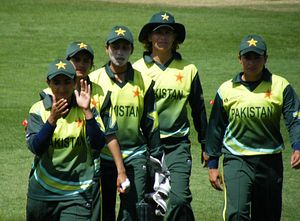Police in the Indian state of Uttar Pradesh have booked 67 Kashmiri students at a private university under sedition charges. These students, who study at Swami Vivekanand Subharti University, located in the garrison town of Meerut about 50 kilometers from Delhi, cheered for the Pakistani team in a cricket match that India lost on Sunday. According to some reports, this created tensions on the campus between Kashmiris and non-Kashmiris. The university administration, fearing a communal flare-up, suspended the cheering crowd. Police thereafter booked the young students – a majority of whom were on the Prime Minister’s scholarship for Kashmiris – under a colonial era sedition charge, thereby deeming support for a rival team in a game of cricket an act of sedition. After lots of pressure and criticism, the Uttar Pradesh government withdrew the sedition charges but it has not uttered a word of condemnation against the university authorities and district administration for playing with the livelihoods of the young aspiring students.
This incident demonstrates an increasing paranoia within the world’s largest democracy. It casts aspersion on the narrow worldview that inhabits modern India – a country which prides itself as a paragon of participatory democracy and as a land of free speech. It highlights our failings as a liberal and open society.
The whole episode calls into question the kind of nationalism this country wants to promote. We want to promote a narrative that does not breed plurality, that does not brook dissent, and does not invite different creeds and nationalities. It is this insular nationalism that was on display when the brawl took place between the two groups of students. Bred on the narrative of Kashmir being an integral part of India, anyone holding a different opinion is deemed anti-national. The non-Kashmiri students could not understand the dissent of their Kashmiri counterparts.
For Kashmiris who are sick and tired of Indian highhandedness in the state, cheering for Pakistan is one way of expressing their resentment towards India. This reflects not a love for the neighboring country but a strong sense of disillusionment with democratic India, which has denied Kashmiris the same democratic rights as other parts of the country. Kashmiri rebellion and dissent are taken as an attack on the sovereignty of the nation and such voices are bracketed as terrorist. India has grown to accept this narrative. Therefore, the majority displays a disconnect from the Kashmiris. Nationalism becomes a means to hide our parochialism.
The media has played a great role in promoting this kind of insularity and as a result the mainstream remains largely ignorant of Kashmir’s history, its special status, and the circumstances that brought the state into the arms of India.
If liking Pakistan and its products is an act of sedition, then many of us, including me, would be facing trial for liking Coke Studio – a Pakistani television series featuring live music performances. If the Islamic republic started applying the same yardstick, the majority of Pakistanis would be behind bar for being in love with Indian Bollywood movies at the cost of the local film industry.
When cricket teams from the subcontinent visit Britain, South Asian expats root for their native teams. The British have never made a point of this issue and never made these immigrants a subject of their ire.
This sort of liberalism and larger tolerance is missing in our narrative of nationalism. As a result, Kashmiris remain largely alienated from greater India. Despite coexistence over six decades, there exists distrust on both sides.
We tend to look at Kashmir from the prism of security and not as a democratic entity in itself. As a result we fail to appreciate the dissent and democratic desires of the people there. So long as we remain prisoner to parochial nationalist instincts we will not appreciate the aspiration and anger of the Kashmiri people.

































